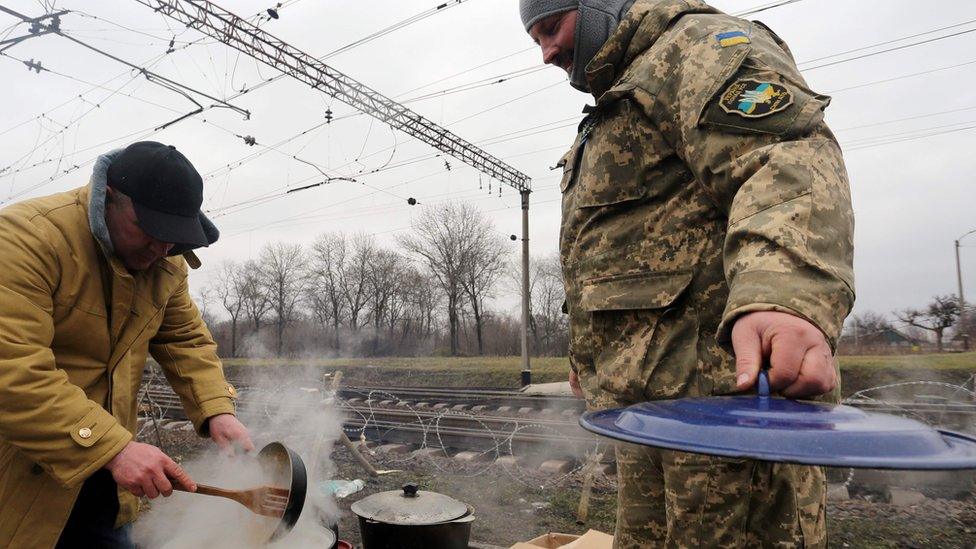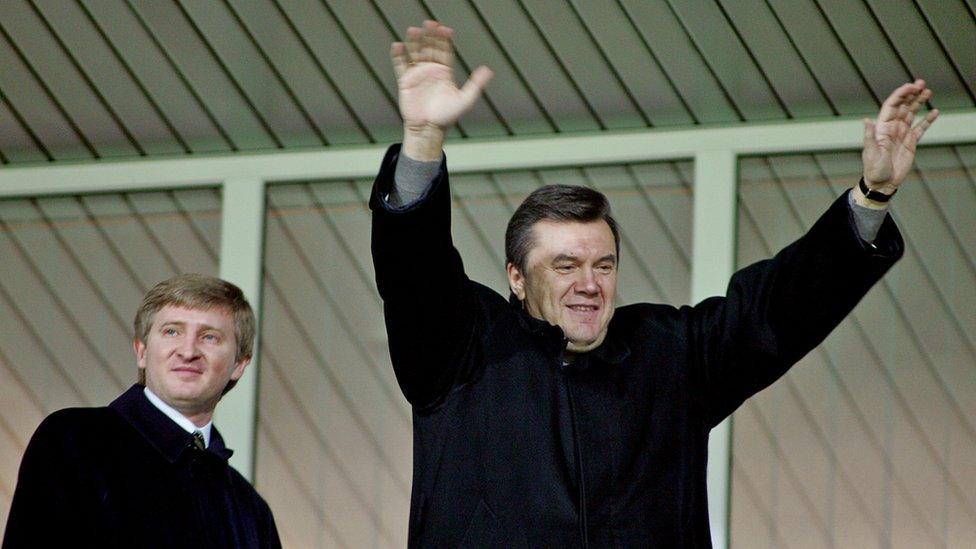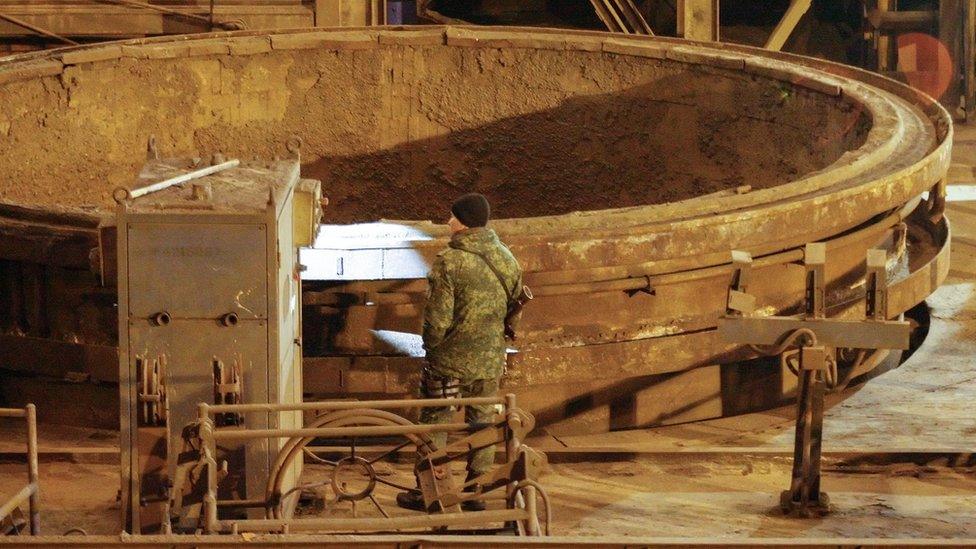Ukraine nationalist blockade threatens economy and severs ties with east
- Published

The government has condemned the blockade by nationalist groups
The repercussions of an economic blockade between the separatist-held east of Ukraine and the rest of the country are beginning to reverberate.
For five weeks, groups of armed, former Ukrainian soldiers and members of small, nationalist political parties have blocked rail lines.
The Ukrainian government has condemned the action, which has stopped trains from transporting coal and other industrial goods.
The blockade has cut off vital links between industrial plants on either side of the conflict's frontline and is greatly damaging Ukraine's economy.
As a result, operations at three steel and coal plants on the separatist side have been suspended.
If the blockade were to continue for a whole year, it is estimated it would cost the Ukrainian economy a staggering $2.5bn (£2.04bn).
Thirty thousand jobs are said to be at risk, as well as Ukraine's energy supply, and more industrial plants could close if the blockade does not end.
The man who employs all those people is Ukraine's richest man, Rinat Akhmetov.

Rinat Akhmetov (L), here with PM Viktor Yanukovych in 2004, was a power broker in the past, but now his assets are being seized
In the past at least, Mr Akhmetov was a political power broker in Ukraine.
He had particular influence in the Donbass region in the east and was born in the region's main city of Donetsk.
When the war broke out in the spring of 2014 he faced criticism for failing to publicly condemn the Russian-backed separatists for several weeks.
However, Mr Akhmetov claims that he has always worked for the unity and prosperity of both Ukraine and Donbass.
Now though, Mr Akhmetov is the biggest loser in the fallout from the economic blockade.
Not only are his businesses on the Ukrainian side being starved of natural resources, such as coal, but the separatist authorities have begun seizing his assets.
Perhaps the most symbolic building is the stadium of Shakhtar Donetsk, the football club, which he owns.

The separatist authorities have begun seizing industrial sites in their territory
However, the internationally unrecognised separatist authorities have also taken control of infrastructure belonging to his telecoms company, Ukrtelecom.
The firm said 200,000 people were left without telephone and internet coverage.
The separatists have threatened to "nationalise" all businesses that are still under Ukrainian control if the blockade is not ended.
Industrial plants belonging to Mr Akhmetov remain open, but armed men have appeared outside some buildings.
Ukrainian President Petro Poroshenko claimed the confiscation of Ukrainian assets was further proof of Russia's "occupation" of the Donbass.
Russia in turn has defended the action of the separatists, arguing that it is a justified response to the blockade.
Taras Berezovets, who used to sit on Ukraine's National Security Council, said internal politics and power games were probably the cause of the blockade.
According to him it's a disaster for Ukraine's economy, and "the real winner is Russia".
